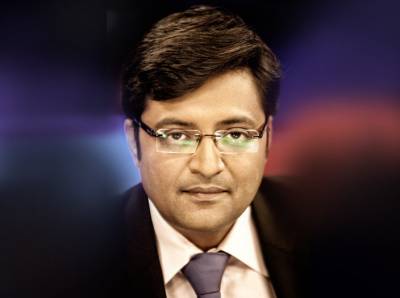When you don’t shout in this country, nobody listens: Arnab Goswami
Among the many speakers on Day 1 at the CII Big Picture Summit 2016 was one whom the attendees were very eager to listen to. He is the man who is responsible for the way India reports news today. The man who came, saw and conquered the broadcast industry in the last one decade. He has become the face of an entire news channel. And he is none other than Arnab Goswami, President and Editor-in-Chief of Times Now and ET Now.
In keeping with the theme of the Summit – ‘Embracing Disruption to Stay Competitive’ – Goswami shared his own experiences in journalism to describe disruption in television news. While delivering his special address, Goswami highlighted how he owned the story of a little boy Prince, who had fallen into a deep borewell in 2006 and remained trapped there for 49 hours till he was rescued by a team of Armymen. He spoke about how during that time the entire team of Times Now worked night and day for that story.
Goswami has been criticised on and off for being extreme in his views, for badgering his panelists. Taking cognizance of such views, he said, “I have been lampooned by my own profession, but we put people first – the only people that give voice to the concern. When we launched, people used to make fun of our channel by calling it Times When or Who instead of Times Now.”
He called on all the young journalists present amongst the audience to support him in changing the future of journalism and advised them to make it a campaign if they believed in something. “We believed in something, we made it a campaign – be it India against corruption or the Nirbhaya case,” added Goswami.
He stressed, “When you don’t shout in this country, nobody listens. In this country, you have to connect strongly with the viewers and amplify your voice.”
He noted, “Three to four years from now, disruption will happen and it will happen 6-7 fold. The first thing that will change is that we will disrupt by taking news away from New Delhi to other parts of the country. New Delhi will not be the centre of news anymore.”
Adding further, Goswami said that for far too long Indian television had lived in boxes, but now there were major platforms to consume news and no one needed a newspaper and TV to know what was happening around the world. “Mobiles and tablets are getting into everybody’s hands,” he noted.
Citing more factors that will change the future of journalism, he said, “The future of TV news will also mark the end of dependence of news on politicians. I dream of a different system, which is mature and fearless and independent in its work.”
Speaking about Indian news going global, he said that three to four years from now, Indian media would go global and “we are going to launch the big challenge to global media. I don’t find BBC and CNN as sacred cows and don’t need Al Jazeera to learn about something”.
Ending on a lighter note, when asked by someone in the audience whether he was afraid of getting sacked, Goswami replied, “I am not afraid of anything and anyone. I don’t need anyone to reach my audience. I am independent.”






Share
Facebook
YouTube
Tweet
Twitter
LinkedIn